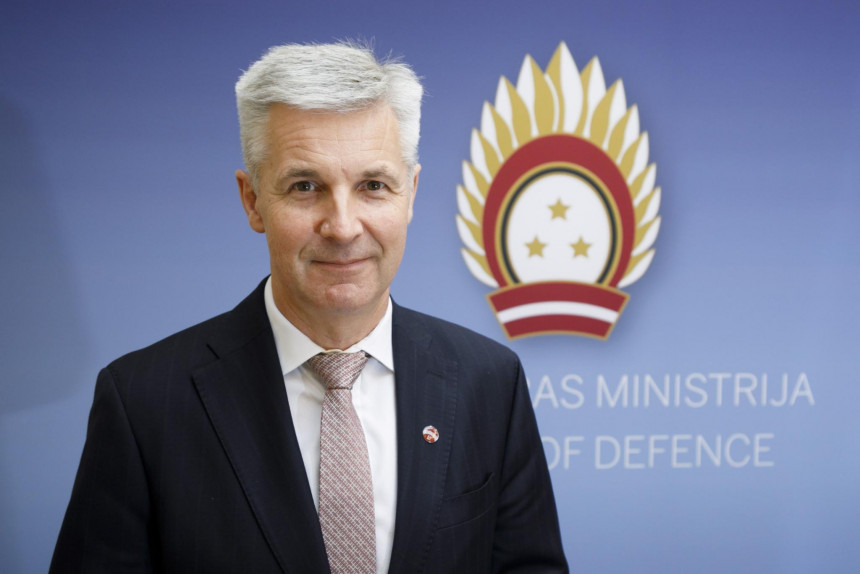MoD Artis Pabriks: We won't change our national policy for the EC

The European Commission (EC) is likely to call on Poland, Latvia and Lithuania to amend laws based on which we push illegal immigrants trying to cross the border illegally back into Belarus. This was stated by Ylva Johansson, EU Commissioner for Home Affairs. She has said in the past that pushing illegal immigrants back should not be the norm. Does this mean that Latvia, Lithuania and Poland will have to let these eastern wanderers into their territory?
The Minister of Defense Artis Pabriks commented on this situation: “First of all, we must take into account where this opinion was expressed. And it was expressed when Commissioner Ylva Johansson spoke to the relevant commission, which is largely made up of left-wing MEPs.
But such a conversation does not necessarily mean that the decision might be made. Of course, it is disappointing that there are Commissioners in the European Commission who still do not understand geopolitics and what is happening at the EU's external borders. So, I do not think that the Council of Europe, which has the leaders of countries, might support this kind of call in the current circumstances. And it would be strange if the EC made such offers.
Secondly, even if there were such calls or demands from the EC against Poland, Lithuania and Latvia, we could safely say: if this type of hybrid operation continues against us, we won't change our national policy for the EC. If it wants - it can sue us. Let it try to change something here. The European Commission has not given us a cent to strengthen security at the border, so it can keep its ideas and comments to itself. When the EC starts supporting the construction of our border, then we can talk about a common migration policy.
The European Commission should understand at least get a little geopolitics: authoritarian regimes such as those in Belarus and Russia are waiting for just such statements, as they divide the EU internally, undermine EU citizens' trust in the EU institutions, and such statements serve the exact goals that the authoritarian regimes have set for themselves. Is Mrs Johansson working for Russia?"
It seems that way. But such "politicians" are often referred to as "useful idiots," which in political jargon is a derogatory term for a person who propagates an idea without understanding its purpose and allowing themselves to be used by the real implementers of the idea. The term has been used since at least the 1940s and is becoming more relevant today. But it is no wonder that comrade Johansson is trying to serve Russia and Belarus in this way: she once represented the Communist Party.
Political jokers say they could suggest some good ideas to people like Johansson: you could create a transport corridor, for example, through Poland and send eastern "tourists" directly to Germany. Or: board them on the Belavia airplane in Syria or another eastern country and fly straight to Germany... or to Brussels. No need for unnecessary pitstops.
It would be interesting to know what discussions on the topic of “refugees” are taking place in the commission chaired by EC President Ursula von der Leyen and what are the positions and views of our fellow countryman - EC Vice President Valdis Dombrovskis. What exactly has he done for Latvia? How has he tried to convince von der Leyen that the EU's border countries - Latvia, Lithuania and Poland - should be helped? Maybe he has nothing to do with it and does not even have a say? Then he receives his salary - more than 20,000 euros a month - for other very important duties? But is it possible that we are all wrong, because the goal of the EC is quite different - to dismantle the European Union?...
Be that as it may, it seems that we can only place our trust in ourselves and in the position of our politicians, to strengthen solidarity with other border countries, because it would be quite pointless to wait for help from Dombrovskis, Leyen, Johansson and other leftists. But the revelation that the Belarussian and Russian regimes are clearly cooperating with EU bodies is beginning to become more transparent. Poland and the Baltic states, on the other hand, remain the buffer between hostile powers, trying to preserve their identity.
